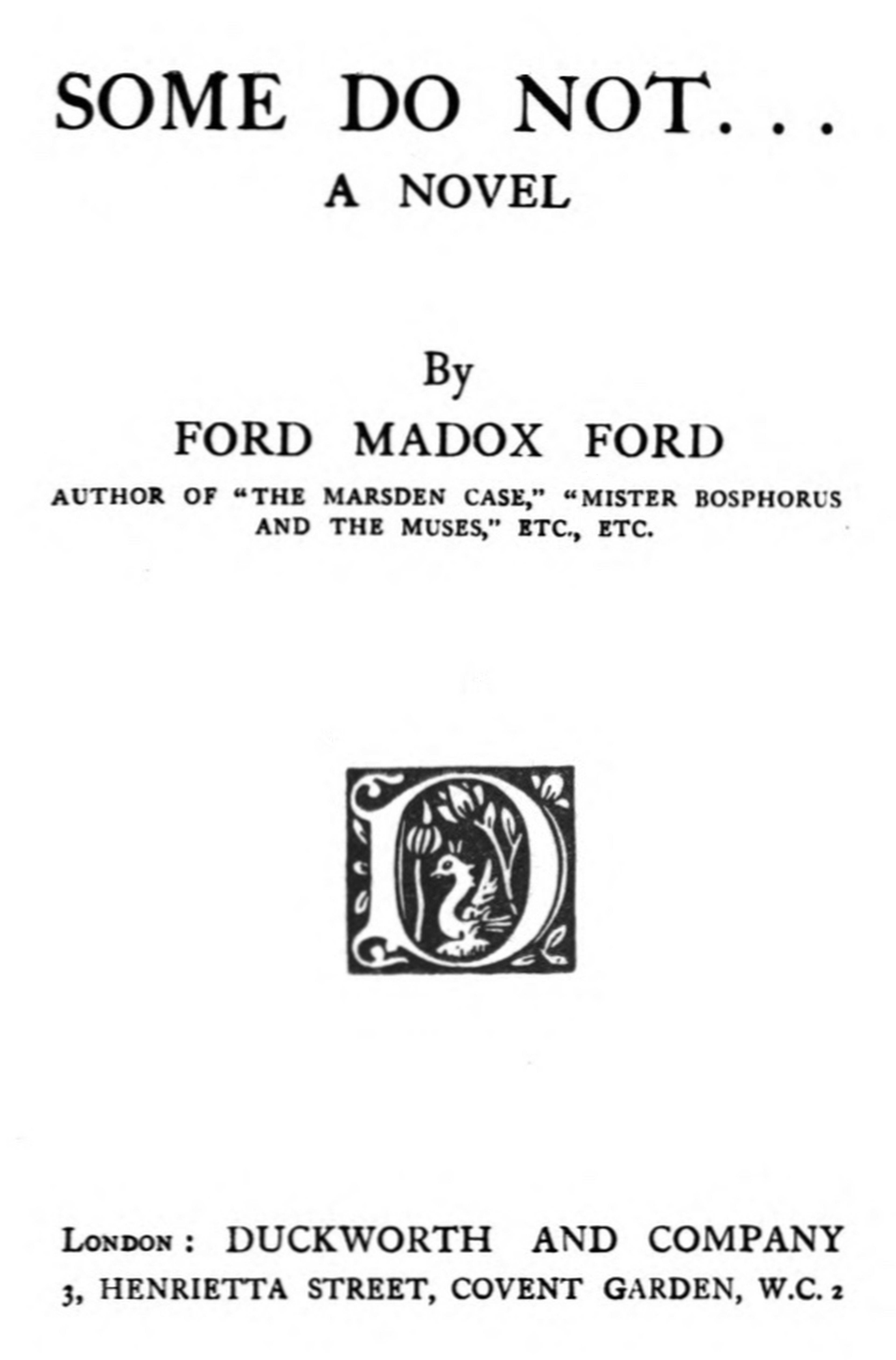
SOME DO NOT. . .
A NOVEL
BY
FORD MADOX FORD
AUTHOR OF "THE MARSDEN CASE," "MISTER BOSPHORUS
AND THE MUSES," ETC., ETC.
London: DUCKWORTH AND COMPANY
3, HENRIETTA STREET, COVENT GARDEN, W.C. 2
CONTENTS
PART ONE
CHAPTER I
CHAPTER II
CHAPTER III
CHAPTER IV
CHAPTER V
CHAPTER VI
CHAPTER VII
PART II
CHAPTER I
CHAPTER II
CHAPTER III
CHAPTER IV
CHAPTER V
CHAPTER VI
PART ONE
I
The two young men—they were of the English public officialclass—sat in the perfectly appointed railway carriage. The leatherstraps to the windows were of virgin newness; the mirrors beneath the newluggage racks immaculate as if they had reflected very little; the bulgingupholstery in its luxuriant, regulated curves was scarlet and yellow inan intricate, minute dragon pattern, the design of a geometrician inCologne. The compartment smelt faintly, hygienically of admirable varnish;the train ran as smoothly—Tietjens remembered thinking—asBritish gilt-edged securities. It travelled fast; yet had it swayed orjolted over the rail joints, except at the curve before Tonbridge orover the points at Ashford where these eccentricities are expected andallowed for, Macmaster, Tietjens felt certain, would have written to thecompany. Perhaps he would even have written to the Times.
Their class administered the world, not merely the newly-createdImperial Department of Statistics under Sir Reginald Ingleby. If theysaw policemen misbehave, railway porters lack civility, an insufficiencyof street lamps, defects in public services or in foreign countries,they saw to it, either with nonchalant Balliol voices, or with letters tothe Times, asking in regretful indignation: "Has the British Thisor That come to this!" Or they wrote, in the serious reviews ofwhich so many still survived, articles taking under their care, manners,the Arts, diplomacy, inter-Imperial trade or the personal reputations ofdeceased statesmen and men of letters.
Macmaster, that is to say, would do all that: of himself Tietjens wasnot so certain. There sat Macmaster; smallish; Whig; with a trimmed,pointed black beard, such as a smallish man might wear to enhance hisalready germinated distinction; black hair of a stubborn fibre, drilleddown with hard metal brushes; a sharp nose; strong, level teeth; awhite, butterfly collar of the smoothness of porcelain; a tie confinedby a gold ring, steel-blue speckled with black—to match his eyes, asTietjens knew.
Tietjens, on the other hand, could not remember what coloured tie he hadon. He had taken a cab from the office to their rooms, had got himselfinto a loose, tailored coat and trousers, and a soft shirt, had packed,quickly, but still methodically, a great number of things in an immensetwo-handled kit-bag, which you could throw into a guard's van if needbe. He disliked letting that "man" touc